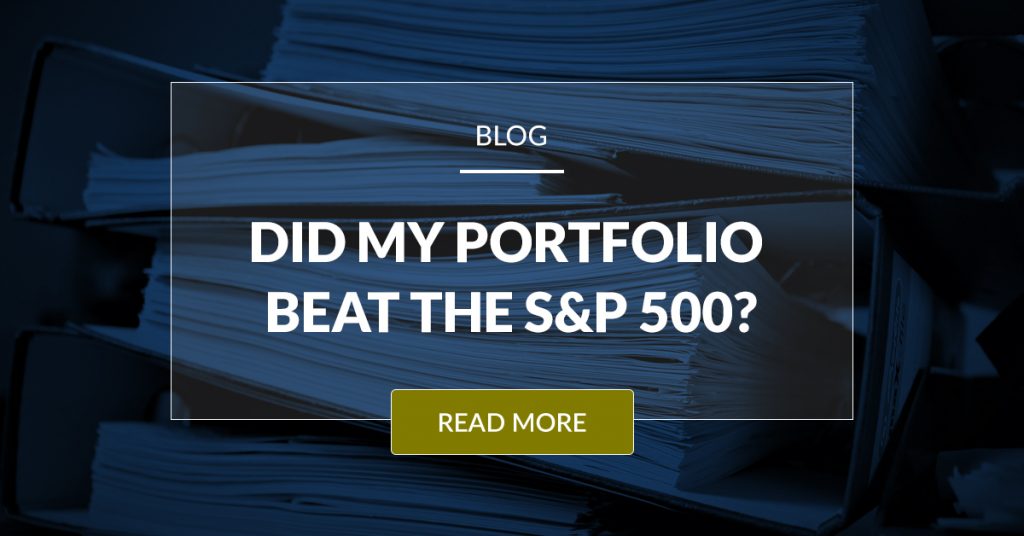One of the most common questions we receive from clients relates to the performance of investment accounts. It’s a fair question. You entrust us to manage your money and you need and deserve a reasonable return. It’s interesting that the nature of investor questions changes based on changes in market volatility and where we are in a given market cycle.
If we turn back the clocks to 2007, 2008, or 2009 the typical questions we were receiving related to the return OF your money, not necessarily the return ON your money. During market downturns, an investor’s focus is on reducing risk and preserving principal. When the S&P 500 was down 50% a few years ago, no investor was interested in competing with that index. A common comment we heard then was something like this, “To heck with the market – I’m a conservative investor and don’t want or need that level of volatility.” Clients want and appreciate diversification at this juncture.
With the bull market that’s now more than 9 years old, the questions have changed significantly. We are hearing more questions about ‘beating the S&P 500’ or ‘beating the market.’ Now that the markets are up, investors want and expect to be beating the S&P. It reminds me of what Grandma said when I was young and overly demanding, “you want to have your cake and eat it too.” We all know that if we want to earn returns comparable to the stock market when it’s up, we must be ready to handle the volatility when it’s down. Conversely, if we can’t handle the steep volatility from an all equity portfolio, we can’t expect to be up as much as the stock market when it’s doing well.
When someone references ‘the market,’ 99% of us think of the S&P 500 or the Dow Jones Industrial Average. But this is only one type of ‘market,’ which we would define as US Large Cap stocks. There are many different markets or investments including bonds, international investments, alternative investments like real estate or energy, and even small and mid-sized stocks.
Our investment philosophy is rooted in proven academic principals of diversification and asset allocation. What this means is we own lots of different investments, not just large cap US investments, because diversification allows us to earn a reasonable return over time while moderating risk. When the S&P 500 is up, your portfolio will likely be up, but up less than this index. If the S&P 500 is down, your portfolio may be down but down less than this all equity index.
Rather than ask how the market did, you should ask if your portfolio is invested in the correct mix of the various investments to best meet your financial goals. I know, it’s not as sexy as saying that your account beat the market by 400 basis points, but it’s what really matters. If your financial goals are being achieved by earning a consistent and reasonably steady rate of return, while assuming a lot less risk than an all-equity portfolio, we shouldn’t pay much attention to the S&P.
We provide Quarterly Performance Reports that show the performance of your portfolio. We even compare your performance to a mix of indices that closely resembles the asset allocation in your portfolio. This helps you better gauge the investments we’re owning for you. This report is posted to your website vault every quarter and should be delivered by October 15th.
Certainly, when the ‘the market’ is down 50%, the last thing you’ll want to compare yourself to is the S&P 500. Let’s refocus on your life goals and how we invest your assets to accomplish those goals.



